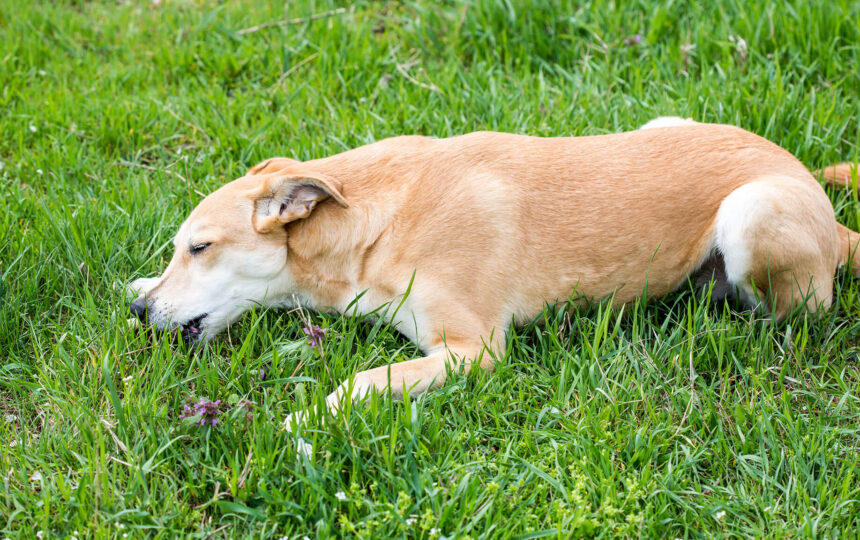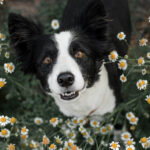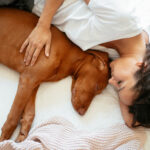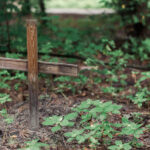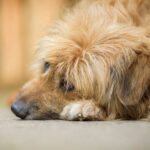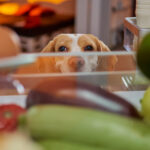We know you don’t really want to talk about it, but we really should. If your pooch persistently eats poop – even their poop – it’s essential to get to the bottom – no pun intended – of this embarrassing and strange behavior.
To some pups, poop is a pure delicacy. Believe it or not, there is a scientific name for this habit – it is called coprophagia, and it is more common than you might think.
Researchers propose theories on poop-eating pooches
Researchers at the University of California at Davis surveyed thousands of pet parents. They found that 16 percent of pooches consume their own or other dog’s feces frequently (meaning they were caught in the act six or more times), and 24 percent of pup parents saw their dog eat poop at least once.
According to the lead study author – Dr. Benjamin Hart-, there are many supposed opinions on why dogs devour feces, such as they are hungry, acting out, bored, etc. Hart hoped that his study would shed some light on the real reason why it happens.
Dr. Hart supposed that something he found in the study could hold the answer. It was found that pups seem to enjoy fresh poop- no more than one or two days old. This behavior, Dr. Hart suggests, goes back to the wolf – an ancestor of the dog. Wolves use the bathroom away from their dens because feces contain parasite eggs. If a lame or sick wolf defecated in the den, there would need to be a quick way to eliminate the waste. Since the feces is not dangerous immediately, it would make sense that healthy wolves would become pooper scoopers! If feces are eaten fresh – the parasite would not be a problem.
This wolf-like instinct may still be around, which would explain why some dogs prefer to clean up after themselves – and others!
Professor James Serpell from the University of Pennsylvania veterinary school and author of the book “The Domestic Dog: Its Evolution, Behavior, and Interactions with People” found that Hart’s idea was certainly “plausible.”
However, Serpell also referenced Dr. Hart’s study that found that coprophagic dogs were “greedy eaters.” Aggressive or greedy eating indicated that there might be some kind of food/dietary motive for the behavior. Dogs in developing countries who are often hungry tend to eat a lot of human feces.
According to Serpell, a modern dog eats quite a bit of protein – some of it not being digested – making feces potentially more attractive. This is a nod in favor of a raw diet – loaded with nutrients that dogs can digest and use for energy.
Another canine professional, Clive Wynee from the Canine Science Collaboratory at Arizona State University, weighed in on the issue stating the following,
“The niche that dogs occupy is essentially one of making a living on people’s leavings — and that isn’t just our leftovers from dinner, but what we put down the toilet, too. So it’s only from our human perspective that coprophagy seems strange. Wynne said the survey also showed that stool-eaters had a greater tendency to eat dirt and cat feces, and this is consistent with the idea that the behavior is motivated by taste and dietary desires.”
Although there is not yet one clear and concise agreement as to why dogs eat feces, it may be something that they are wired to do, and some dogs lean into the behavior more than others.
How to get your pup to stop eating poop
If you are a pup parent with a poop-eating pet, you may have tried many things to stop the behavior. Sadly, Dr. Hart’s study found that owners he surveyed tried numerous things, from shaking pepper on stools to giving commands like “leave it alone.” or even using 11 different commercial “poop off” products which did not seem to work either.
The disturbing truth is that no matter why your dog loves to dine on fresh poop – there may be little you can do to discourage the behavior – no matter how well-behaved your dog is.
Keeping feces picked up in your yard and overseeing your pup at dog parks and on walks is one way to reduce the number of occasions your dog has to dine.
How to clean your dog’s mouth after eating poop
So, if you can’t control the behavior, you need to control the outcome, which is, unfortunately, poopy smelling breath. No one wants a nice slobbery kiss from their canine companion laced with poop, right?
Although your instincts may be screaming for you to run for the bottle of human-grade mouthwash, this is not the best first course of action.
Here are a couple of methods you can use to keep your dog’s mouth and breath clean even though they may get into some feces from time to time.
Method one: the rapid cleanout
This method is perfect if you have just spotted your dog downing a dump! As soon as you can – after the gross event has occurred – take the following steps to ensure a clean mouth and fresh breath.
Step one: Offer your dog food and water. Doing this produces saliva, which will naturally clean out the mouth. Water will also help to rinse away any nasty germs and poop residue.
Step two: Give your pup a natural dental chew. This will work up more saliva w which will further clean out your dog’s mouth. Chewing on the dental bone will also create friction to remove poop deposits between teeth and on gums.
Step Three: Dip a clean cloth or piece of gauze in coconut oil and wrap it around your finger. Get a friend to help hold your pup steady and insert the cloth into the side of your pup’s mouth. Wipe the gums, the roof of the mouth, and the tongue with the cloth.
Step Four: Get another clean cloth or piece of gauze and dip it in some doggy mouthwash ( note, this is different than human mouthwash). Use this to wipe the inside of the mouth and tongue again.
After following these steps, your pup may be frustrated, but the poop breath should be gone. Offer praise and a treat for good behavior.
Method Two: Teeth brushing
The teeth-brushing approach is also an excellent way to rid your dog of foul poop breath!
Step one: Use an appropriate doggy toothbrush – they even make them to fit on your finger. If you don’t have a doggy toothbrush on hand, use a child’s soft bristle brush.
Step two: Use doggy-approved toothpaste – never human-grade toothpaste.
Step three: Lift up your pup’s lip away from their teeth. Doing this will expose the teeth, gums, and cheek flaps.
Step four: Gently insert the toothbrush inside your dog’s mouth and brush gently in small circles. If you have never brushed your pup’s teeth, the first time you do this could be a train wreck. Be patient with your dog and yourself.
Step five. Dip a clean cloth or piece of gauze in doggy mouthwash. Gently wipe the inside of your pup’s mouth – removing any toothpaste and poop residue. Dip another clean cloth or piece of gauze in fresh water and wipe down the inside of your pup’s mouth again.
Step six. Offer a dental bone and lots of praise for your pup.
Can dogs get sick from eating poop?
Coprophagia – eating poop – can make your pup sick, but it depends on the circumstances. For instance, if your pup eats other animals’ poop that has ingested something nasty – this could cause a problem for your dog.
Symptoms of your pup’s immune system being upset by something in poop include:
- Nausea and vomiting
- Lethargy
- Diarrhea
- Loss of appetite
- Worms or parasites
If symptoms don’t subside within 24 hours or worsen, call your vet clinic for advice.
The best thing you can do as a pet parent is to be aware of your dog’s behavior. Feed them a wholesome, raw food diet, give them plenty of love and exercise, and keep their bathroom clean at all times – thus removing any temptations!
